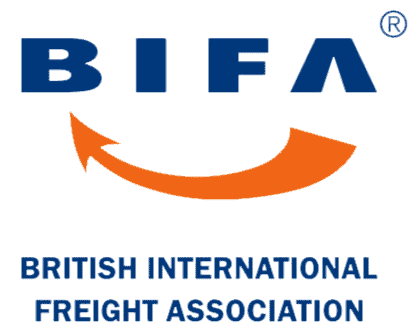
FAS (Free Alongside Ship)
FAS, or Free Alongside Ship, is a term from the days of sail shipping. Under this arrangement, the seller’s responsibility is to deliver goods right next to the ship. After this, the buyer assumes all continuing costs, risks, and logistics. Today, FAS is less commonly used and is limited to sea freight and inland waterway transport.
Read on to explore its definition, and the practical applications FAS offers in different sectors and to compare it with other shipping terms.
Table of Contents
The Definition of FAS Shipments
FAS stands for Free Alongside Ship. It is one of the 11 International Commercial Terms, or INCOTERMS, used in the shipping and logistics industries. More precisely, FAS is used in international shipping contracts to denote that the seller is responsible for delivering the goods alongside a designated vessel at a specified port of shipment.
What this boils down to is that the risk of loss or damage to the goods is transferred from the seller to the buyer as soon as the consignment is placed alongside the ship. FAS delivery terms are typically – but not exclusively – used for bulk or non-containerised cargo. Under FAS, the buyer assumes all costs and risks from that point onwards, including loading onto the vessel, transportation and insurance.
It’s essential for UK importers to understand that under free alongside ship terms, they have significant responsibilities. These include arranging for export clearances from the country of origin which may involve significant amounts of administration. FAS delivery terms also mean the buyer must cover all the costs and risks associated with transporting the goods from the port of shipment to its final destination in the UK.
Practical Examples of FAS in Different Sectors
FAS is versatile and can be applied across various sectors. In the automotive parts industry, for example, a UK importer may use FAS when purchasing components from overseas manufacturers. The goods would be delivered alongside the vessel at the foreign port, with the importer taking over the shipping process thereafter. When supply chain management processes are well-honed, as they often are in the car manufacturing sector, FAS may allow for a greater degree of control over the transportation of car parts.
In the clothing sector, FAS is less common due to the typically smaller size and higher value of the goods. However, for bulk shipments of raw materials like fabric or leather, FAS is sometimes seen as a viable option so long as the importer has experience in international shipping or a skilled freight forwarder to support them.
At Barrington Freight, we specialise in making your importing and exporting straightforward. From customs clearance to finding the right commodity codes, our expert team is here to assist. Don’t let the complexities of global trade hold you back. Reach out to Barrington Freight for efficient and reliable shipping solutions.
Comparing FAS with other Shipping Terms
Comparing FAS with other shipping terms helps in selecting the most suitable option. FOB (Free On Board) is similar to FAS, but under FOB delivery terms, the seller is responsible for loading the goods onto the vessel at the port of shipment. CIF (Cost, Insurance and Freight) places more responsibility on the seller, who must pay for the costs of having the goods shipped to the destination port with adequate insurance. On the other hand, EX-WORKS is at the opposite end of the spectrum, where the buyer takes responsibility for all aspects of the shipment from the seller’s premises.
Each term has its implications regarding cost, risk and control over the shipping process. Because it is somewhere in the middle of the 11 INCOTERMS, FAS provides a degree of balance. It offers importers control over their shipping and insurance costs from the port of shipment while avoiding some of the complexities associated with arranging cargo shipments from an overseas supplier to a nearby seaport from the UK. In short, there are both advantages and disadvantages to FAS delivery terms.
The Pros and Cons of FAS for International Shipments
When evaluating FAS for international shipments, UK importers should consider the following.
Plus Points of FAS Delivery Terms
- Greater Control Over Shipping: If wanted, importers can negotiate directly with shipping companies, potentially obtaining better freight rates and preferred shipping schedules.
- Flexibility in Choosing Freight Services: FAS allows importers to select their preferred freight forwarders and insurance providers, ensuring tailored services that meet specific requirements.
- Reduced Seller’s Responsibility: Since the seller’s obligations end at the port of shipment, the risk of delays or additional costs due to the seller’s lack of international logistical expertise is minimised.
- Better Visibility and Tracking: By managing the freight process, importers gain improved visibility into the transportation of goods, enabling better tracking and coordination, especially if they choose a British-based freight forwarder with experience in this area.
Potential Downsides to FAS Delivery Terms
- Increased Responsibility for Logistics: Importers must handle all aspects of transportation from the port of shipment, including loading, freight and insurance unless they appoint a freight forwarding firm to take care of these matters.
- Need for Expertise in International Logistics: Effective use of FAS in-house requires knowledge and experience in international shipping, customs procedures and documentation which takes investment.
- Risk of Coordination Challenges: Coordinating with foreign ports, shipping lines and freight handlers can be complex and may lead to delays or miscommunications.
- Geographical Limitations: FAS may not be the most efficient choice in regions with less developed port infrastructure.
Utilising FAS, or Free Alongside Ship, can present various challenges, but these potential downsides are significantly minimised when you partner with an experienced international freight forwarding company like Barrington Freight. From managing customs clearance documents to offering expert advice, we are dedicated to keeping you informed and on top of all the details. With Barrington Freight, you can trust that your freight is in capable hands, allowing you to focus on your business without the stress of logistics complexities.
FAS in a Nutshell
For any UK business engaged in international trade, understanding FAS (Free Alongside Ship) is vital for making informed strategic decisions about global order fulfilment. While this approach offers control and potential cost savings, it also necessitates a proactive stance on logistics. Businesses must balance the benefits with the associated responsibilities, considering factors such as the nature of the goods, port service efficiency, and their ability to manage international logistics.
At Barrington Freight, we understand that navigating the complexities of international logistics can be a daunting task for many businesses. That’s why partnering with us, a proficient and skilled freight forwarder, can be immensely beneficial to your operations. Our team of experts is dedicated to streamlining the process, providing the necessary expertise and support to guide you through every step of the way.
Barrington Freight’s operation team is on hand to talk to if you have arranged a FAS shipment from your supplier and need expert assistance to move goods on from their free alongside ship status so they can complete their UK-bound journey: contact us today!
We’re friendly, easy to work with, honest and we don’t charge the earth.
For advice and information on shipping time from China to the UK, call 01268 525444 or email us today.


